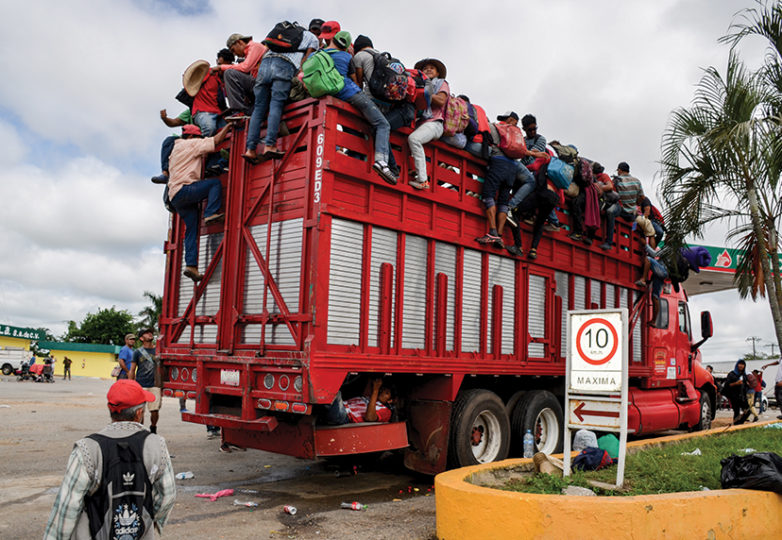If you’ve been following the news lately, you are probably aware of the US-bound caravan of migrants. If not, here’s what you need to know:
For the past month, a caravan of thousands of migrants has been moving from Central America towards the US-Mexico border. Nearly all of them are from Honduras, though some joined from Guatemala and El Salvador. Though groups of migrants arrive at the border almost daily, this is one of the largest to date. It has even drawn the attention of President Trump, who threatened to “Close our Southern Border” in a recent Twitter post. As of last week, after covering thousands of miles on the journey, more than 7,000 migrants have reached the border. They were staying in temporary shelters in the border cities of Tijuana and Mexicali, but Tijuana has just shut down its shelter, forcing the migrants to move farther from the border.
There is a variety of reasons behind why the migrants left their homes. The common theme is the hope of building a better future for themselves and their families. Many are threatened by criminal gangs in their hometowns and want to protect their children. Others desire a higher paying job, or any job at all, and some have plans of sending the money they earn home to relatives who stayed behind. There is also a fraction of the group who have relatives in the United States that they want to join or who have been separated from them.
So, what next? The migrants who have reached the border plan to claim asylum in the United States. Claiming asylum means that they are asking for political protection from another country because they cannot return to their own country. To do so, the migrants must prove they faced persecution in their home country due to race, religion, nationality, membership in a particular social group or political opinions. Meanwhile, according to Honduran officials, 7,000 Hondurans have turned back and returned to Honduras, choosing to avoid the potentially dangerous risks ahead.
I encourage everyone to pay close attention to news on the migrant caravan over the next few weeks. I believe that this situation is a crucial reflection of how the United States responds to calls for help. The future of thousands of people is at stake, and I am eager to see how the affairs proceed.

